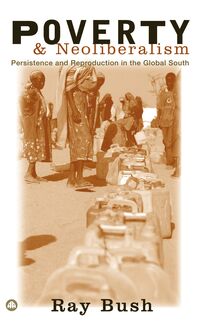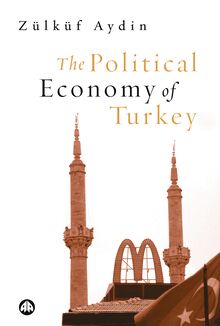-
 Univers
Univers
-
 Ebooks
Ebooks
-
 Livres audio
Livres audio
-
 Presse
Presse
-
 Podcasts
Podcasts
-
 BD
BD
-
 Documents
Documents
-
- Cours
- Révisions
- Ressources pédagogiques
- Sciences de l’éducation
- Manuels scolaires
- Langues
- Travaux de classe
- Annales de BEP
- Etudes supérieures
- Maternelle et primaire
- Fiches de lecture
- Orientation scolaire
- Méthodologie
- Corrigés de devoir
- Annales d’examens et concours
- Annales du bac
- Annales du brevet
- Rapports de stage
La lecture à portée de main
Vous pourrez modifier la taille du texte de cet ouvrage
Découvre YouScribe en t'inscrivant gratuitement
Je m'inscrisDécouvre YouScribe en t'inscrivant gratuitement
Je m'inscrisEn savoir plus
Vous pourrez modifier la taille du texte de cet ouvrage
En savoir plus

Description
Social unrest, political and ethnic violence, paralysis of the state bureaucracy and other institutions, increasing foreign debt, decreasing economic growth, vast inflation and increasing unemployment have all been part of everyday life in Turkey's recent history. Zulkuf Aydin argues that this state of affairs is symptomatic of a deeper, more enduring crisis arising from the way in which Turkey has been integrated into the global economy. Looking at democracy, repression, the military, the Kurdish question and regional inequalities, civil society, human rights and Islamic fundamentalism in Turkey, he shows how Turkey has become reliant on foreign investment and international financial institutions, offering a broader critique of globalisation in this light.
Acknowledgements
Introduction
1. The State
2. Democracy, development and good governance
3. Cyclical Crises Since 1980
4. Agrarian Crisis
5. Political Islam in Turkey
6. The Kurdish Question
Notes
Bibliography
Index
Sujets
Informations
| Publié par | Pluto Press |
| Date de parution | 20 décembre 2004 |
| Nombre de lectures | 0 |
| EAN13 | 9781783719464 |
| Langue | English |
Informations légales : prix de location à la page 0,1650€. Cette information est donnée uniquement à titre indicatif conformément à la législation en vigueur.
Extrait
The Political Economy of Turkey
Zülküf Aydın
First published 2005 by Pluto Press
345 Archway Road, London N6 5AA
and 839 Greene Street, Ann Arbor, MI 48106
www.plutobooks.com
© Zülküf Aydın 2005
The right of Zülküf Aydın to be identified as the author of this work has been asserted by him in accordance with the Copyright, Designs and Patents Act 1988.
British Library Cataloguing in Publication Data
A catalogue record for this book is available from the British Library
ISBN 0 7453 1827 4 hardback
ISBN 0 7453 1826 6 paperback
ISBN 978 1 7837 1946 4 epub
ISBN 978 1 7837 1947 1 kindle
Library of Congress Cataloging in Publication Data applied for
10 9 8 7 6 5 4 3 2 1
Designed and produced for Pluto Press by
Chase Publishing Services, Fortescue, Sidmouth, EX10 9QG, England
Typeset from disk by Newgen Imaging Systems (P) Ltd, India
Printed and bound in the European Union by
Antony Rowe Ltd, Chippenham and Eastbourne, England
Dedicated to the memory of a dear friend Carolyn Baylies . To Vehbi, Müzeyyen, Gülsevin, Esma, Ela and Sena .
Contents
Acknowledgements
Introduction: Globalisation, capitalist crises and Turkey
Interpretations of globalisation
Globalisation, homogenisation and global inequalities
Periodic crises and capitalism
Globalisation and TNCs
Globalisation, internationalisation of capital and the nation state
The 1980s and debt peonage
Speculative capital movements
Flow of equity investment to emerging markets
The US’s role in the current financial crises
Globalisation again
1 The state
Introduction
State intervention in Turkey
Economic policies in the 1950s
The planned period 1960–80
Development since 1980
How successful were the SAPs in the 1980s?
Liberalisation of foreign trade
Repressive anti-trade union policies
2 Democracy, development and good governance
Good governance, democracy and development
Democracy and development
The predominance of the state
The Turkish State
Democracy in Turkey
Liberalisation and democratisation since 1980
3 Cyclical crises since 1980
Rapid loss of economic autonomy
Financial liberalisation and the 1994 crisis
Disinflation programmes and the 2000–01 crisis
Repercussions of the 2001 crisis
The transition to a stronger Turkish economy programme of 2001
Conclusion
4 Agrarian crisis
Internationalisation of Third World agriculture
The end of developmentalism
General Agreement on Trade and Tariffs (GATT) and the World Trade Organisation (WTO)
The promotion of small-scale household production and the modernisation of Turkish agriculture
Economic hardships and neo-liberalism
Standby agreements since 1999 and Turkish agriculture
The sagas of sugar and tobacco
Sugar
Tobacco
Direct income support
Liberalisation and food security
History repeats itself: Mexico and Turkey
5 Political Islam in Turkey
Political Islam as a reaction to modernisation
Kemalism, Islam and identity politics
Turkish identity and Islam
The moderation of political Islam
Political Islam, class politics and business interests
The National Outlook Movement (NOM)
The rise and fall of the Welfare Party
Globalisation and the rise of political Islam in Turkey
Conclusion
6 The Kurdish question
Ethnicity and identity
The emergence of conflicting Turkish and Kurdish ethnies
Treaties of Sèvres and Lausanne
The emergence of Kurdish nationalism in Turkey
Kurdish nationalist discourse in Turkey
Uncompromising nationalism
Conclusion: the European Union and the Kurdish question
7 Conclusion
Notes
Bibliography
Index
Acknowledgements
I would like to thank the School of Politics and International Studies at the University of Leeds for granting me research leave for the preparation of this book, the Department of Politics and Public Administration at the Middle East Technical University and the Department of Politics at Bilkent University in Turkey for providing me with a wonderful working atmosphere. I would like to express my deep appreciation to Ray Bush, Gordon Crawford, Ruth Pearson, Galip Yalman, Nurdan Yalman, Fuat Keyman and Gülsevin Aydın for their encouragement and intellectual support. I am also thankful to Emma Smith for her help keeping my arguments clear and my grammar correct.
Introduction: Globalisation, capitalist crises and Turkey
The last few decades have witnessed a vast array of the most serious crises in Turkey since the establishment of the Republic in 1923. Social unrest, political and ethnic violence, paralysis of the state bureaucracy and other institutions, foreign exchange problems, increasing foreign debt, a decreasing rate of economic growth, astronomical rates of inflation, an alarming trade and balance of payments deficit, uneven urbanisation, increasing unemployment and inefficient social services have all been part of everyday life in the recent history of Turkey.
This book is intended to contribute to both current discussions amongst the social scientists on the political and socio-economic problems faced by Turkey in recent decades and the process of Turkey’s integration into the global economy. In so doing it concentrates on various aspects of the current political and socioeconomic crisis facing Turkey. The main contention is that current problems in Turkey are the result of the specific way in which political, economic and social forces are shaped by both the internal and external dynamics at work. Turkey’s further integration into the world economy as a result of increasing globalisation has meant that upheavals in the world economy are deeply felt in Turkish society. With the turmoil in the world economy in the last few decades generating the collapse of commodity prices for agricultural products, minerals, oil and gas, the crisis in Turkey, along with a number of less economically developed countries, has intensified. This book aims to analyse the internal and external dynamics of the socio-economic crisis in Turkey.
The prevalence of the economic crisis in Turkey has forced governments since the 1980s to give in to international pressures to open up the economy. This has meant the abandonment of nationalistic Import Substituting Industrialisation (ISI) policies in favour of more export-oriented policies. The clash of interests generated between protected manufacturing industries and their underlying nationalist ideology, together with the international capital and its free market economy ideology, have posed a major dilemma for policy makers. Current fiscal, monetary, political and social crises facing Turkey have led many governments to try to develop survival strategies, which have necessitated major changes in economic and social policies. By looking at state policies on agriculture, industry and social services, this book intends to show the multi-dimensional nature of the crisis and explore its roots in their national and international contexts. Furthermore, it will also show that people are not passive sponges absorbing whatever is thrown at them by the state. In doing so, popular reactions to state policies in the form of ethnic, religious and class protests and mobilisations will be concentrated upon.
In the last four decades the economy, state, class structure and external relations in Turkey have been fundamentally transformed. Most studies of the Turkish transformation have concentrated on various dimensions of change, such as economic structuring under the influence of Structural Adjustment Policies (SAPs), the rise of militant Islam, the process of democratisation, ethnic conflict, etc. while ignoring the deeper structural forces that play a determinant role in shaping these historico-specific conjunctural changes. A deeper understanding of these changes requires a wider perspective which provides a spectrum to reveal interconnections between factors appearing to be unrelated.
INTERPRETATIONS OF GLOBALISATION
Such a wide perspective is provided by globalisation, which is considered to represent an ‘epochal shift’ by Ruggie (1993) and Walters (1995). For less economically developed countries the fashionable term ‘globalisation’ symbolises the process of integration into the world economy, a process by no means smooth and conflict free. It is a process of restructuring on all fronts: political, economic, social and cultural. The relationship between societies that are undergoing transformations and the global world order is one of dynamic articulation. It is difficult not to agree with Wood (1999) that ‘every capitalist economy exists only in relation to others’. Crises that occur in specific nation states are in fact manifestations of the operation of global economic forces. The global structures provide the background within which specific changes in societies take place. In other words, globalisation, which involves transnational processes of the internationalisation of trade, production, technology, finance and social life, acts as the last determinant in the transformation of societies. Specific changes in economic, social and political structures cannot be understood unless the dynamics which shape world-wide transformations are taken into account. In other words, globalisation provides the backdrop against which specific and conjunctural changes can be analysed. In this book the term globalisation will be used with caution in order to avoid some of the pitfalls of interpreting it as an uncontrollable homogenising process operating without much input from any actors.
A brief look at various definitions of globalisation will indicate some of the contradictions generated by the all-encompassing process of globalisation. The definition of globalisation changes according to whether the emphasis is primarily on economic, social or political transformations. For instance, the sceptics like Hirst and Thompson (1999) are critical of the approach that sees globalisation as a world-wide pr
-
 Univers
Univers
-
 Ebooks
Ebooks
-
 Livres audio
Livres audio
-
 Presse
Presse
-
 Podcasts
Podcasts
-
 BD
BD
-
 Documents
Documents
-
Jeunesse
-
Littérature
-
Ressources professionnelles
-
Santé et bien-être
-
Savoirs
-
Education
-
Loisirs et hobbies
-
Art, musique et cinéma
-
Actualité et débat de société
-
Jeunesse
-
Littérature
-
Ressources professionnelles
-
Santé et bien-être
-
Savoirs
-
Education
-
Loisirs et hobbies
-
Art, musique et cinéma
-
Actualité et débat de société
-
Actualités
-
Lifestyle
-
Presse jeunesse
-
Presse professionnelle
-
Pratique
-
Presse sportive
-
Presse internationale
-
Culture & Médias
-
Action et Aventures
-
Science-fiction et Fantasy
-
Société
-
Jeunesse
-
Littérature
-
Ressources professionnelles
-
Santé et bien-être
-
Savoirs
-
Education
-
Loisirs et hobbies
-
Art, musique et cinéma
-
Actualité et débat de société
- Cours
- Révisions
- Ressources pédagogiques
- Sciences de l’éducation
- Manuels scolaires
- Langues
- Travaux de classe
- Annales de BEP
- Etudes supérieures
- Maternelle et primaire
- Fiches de lecture
- Orientation scolaire
- Méthodologie
- Corrigés de devoir
- Annales d’examens et concours
- Annales du bac
- Annales du brevet
- Rapports de stage








